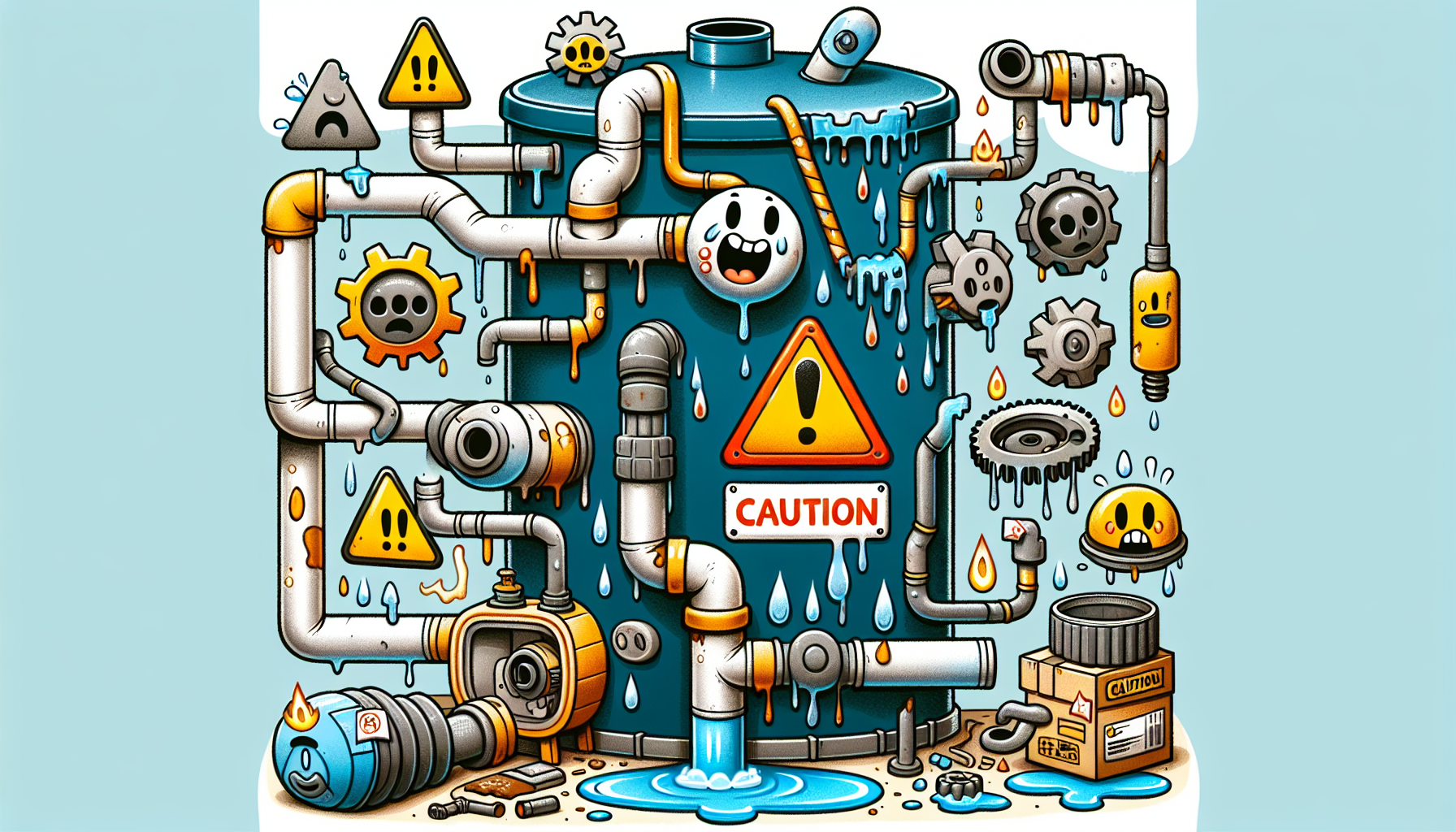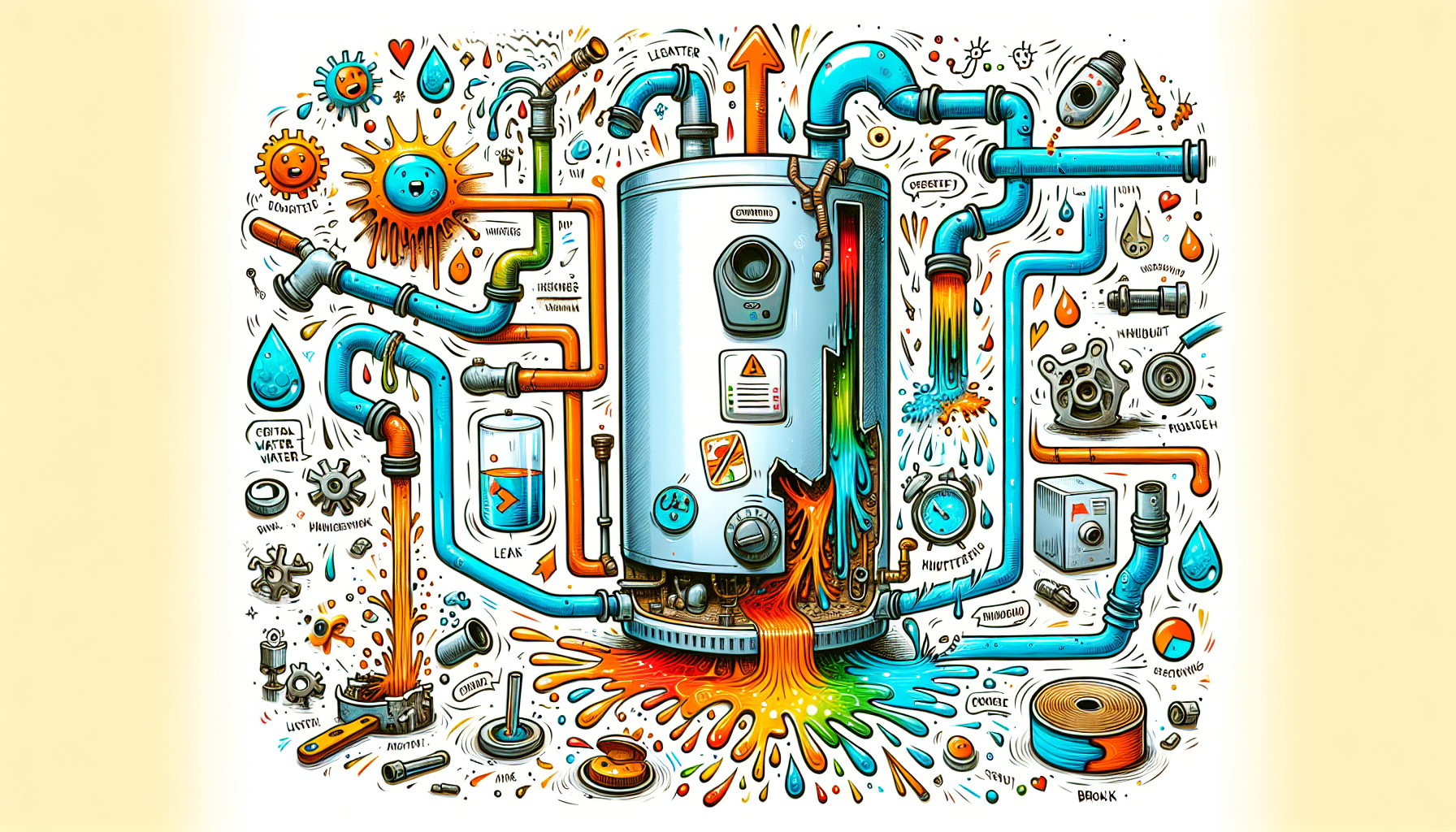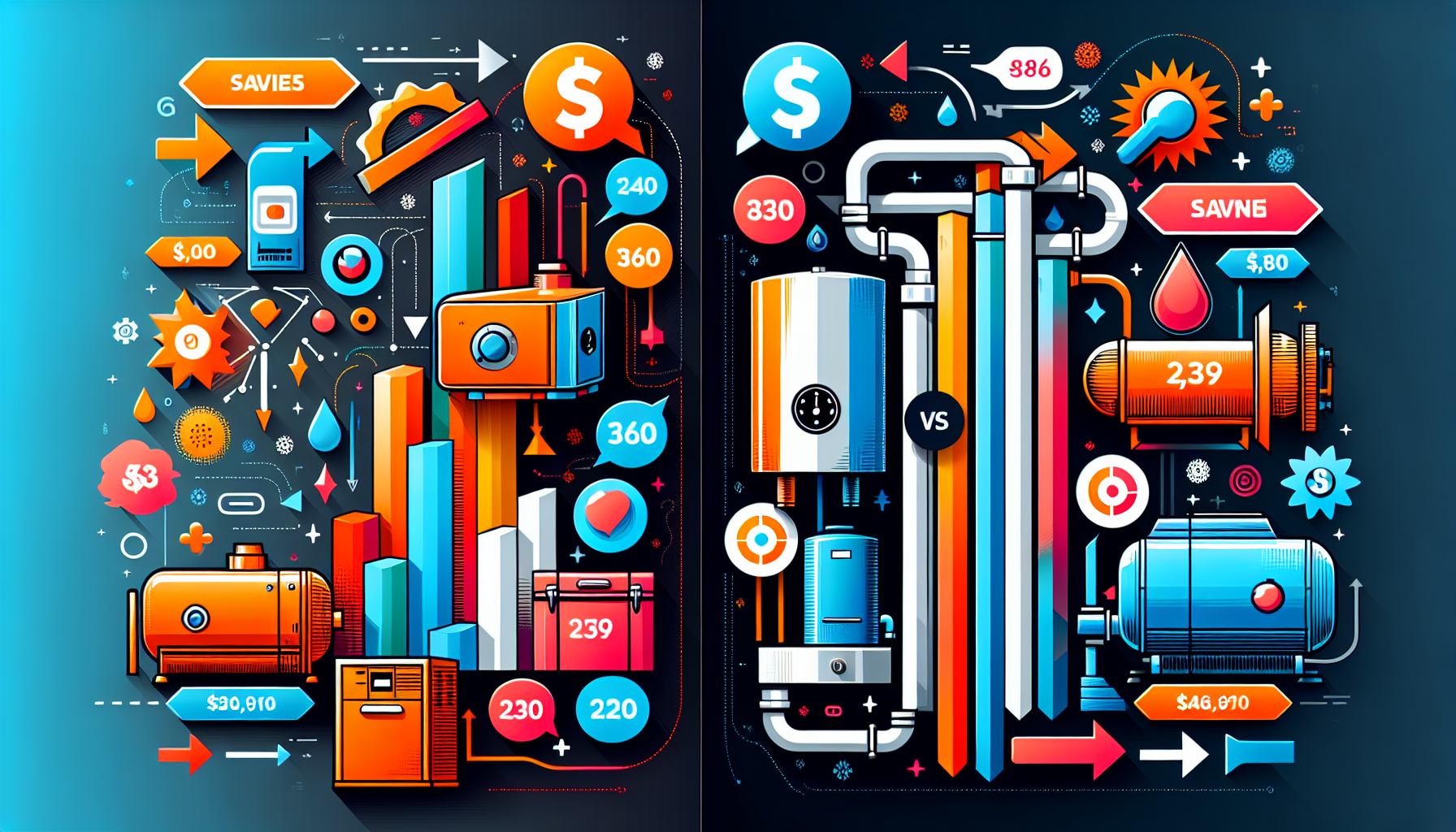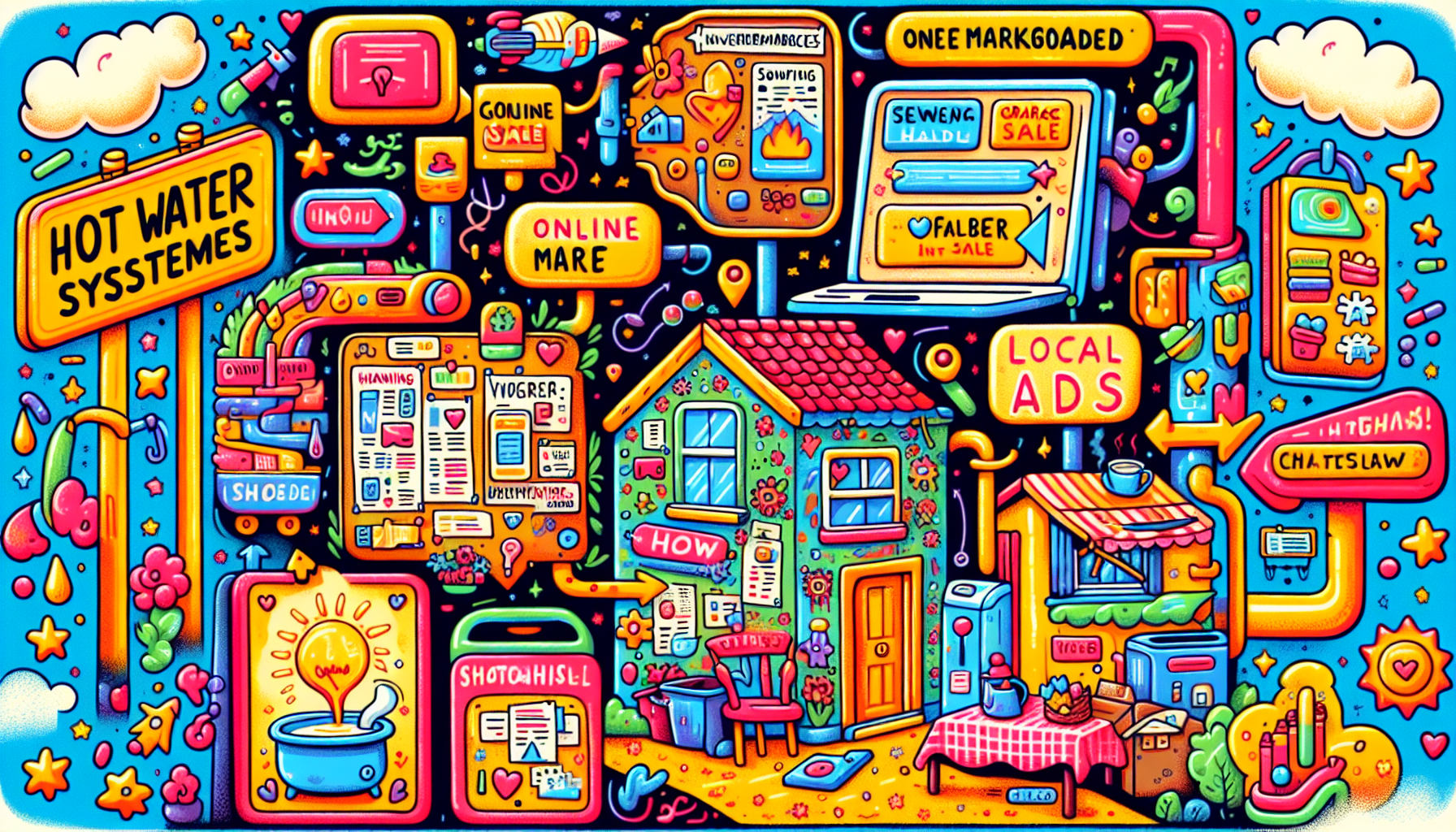Best Tips for Buying a Second Hand Hot Water System
Considering a second hand hot water system? This article covers the potential risks, benefits, and essential tips to help you make an informed decision.
Key Takeaways
-
Buying second-hand hot water systems carries risks such as hidden damage, inefficiency, and shorter lifespan, often resulting in higher long-term costs.
-
New hot water systems offer improved energy efficiency, safety features, and less maintenance, making them a more economical and sustainable choice.
-
Before purchasing a second-hand unit, it’s essential to assess its age, condition, and maintenance history, and consider a professional inspection to reduce potential issues.
The Risks of Buying a Second Hand Hot Water System

Purchasing second-hand hot water systems involves inherent risks that can lead to unexpected expenses and inconveniences. Hidden damage is a primary concern, as used systems may have internal or external issues like corroded parts or faulty components, potentially resulting in costly repairs.
Efficiency is another significant factor. Older hot water systems often lack the efficiency of newer models, leading to higher utility bills. This inefficiency can negate any initial savings from purchasing second-hand. Additionally, these systems tend to have shorter lifespans, meaning a replacement may be needed sooner than expected.
Given these risks, buying a second-hand hot water system is generally not recommended. Hidden damages, reduced efficiency, and shorter lifespan all contribute to higher total ownership costs and more frequent disruptions in your hot water supply.
Why New Hot Water Systems Are Recommended
Investing in a new hot water system can significantly enhance your home’s energy efficiency. Modern systems incorporate advanced technologies that reduce energy consumption, leading to lower utility costs. Conversely, older systems often suffer from inefficiencies that can spike your energy bills.
When choosing a new system, consider the energy efficiency rating. A higher rating translates to lower operating costs and greater savings on your utility bills. Additionally, new hot water systems come with enhanced safety features that protect against overheating and leaks, offering peace of mind for homeowners. Rheem hot water systems are a popular choice for many.
New systems also require less maintenance due to their advanced construction and technology, reducing the hassle and cost of regular upkeep. Financial incentives and rebates are often available, making new systems more affordable than you might think. Additionally, installing a new hot water system can boost your property’s market value, making it a wise investment in the long run.
Upgrading to a new hot water system not only saves money and enhances safety but also promotes a more sustainable lifestyle. Many modern systems are designed to be environmentally friendly, using less energy and reducing your carbon footprint.
Factors to Consider When Evaluating a Second Hand Hot Water System
If you still consider buying a second-hand hot water system, evaluating several critical factors is crucial. Start by assessing the system’s age, as hot water systems typically last 10 to 12 years. The frequency of use can also provide insight into the system’s condition and longevity.
Examine the water heater for signs of rust, leaks, or corrosion. Modifications or repairs can affect reliability, so review the maintenance history to ensure regular servicing. Inquire about when the sacrificial anode was last replaced and the most recent service date.
Lastly, check if the system is still under warranty, which can assure its working condition and offer protection against potential issues. Note that understanding the system’s history, including past repairs or maintenance, aids in making an informed decision.
Common Problems with Second Hand Hot Water Systems

Second-hand hot water systems often come with a host of common problems. Water leaks are among the most prevalent issues, typically caused by corroded parts or loose fittings. If not promptly addressed, these leaks can cause significant damage to your property.
Discoloured water or unpleasant odours from taps can indicate rust or bacterial growth in the tank, often stemming from corrosion. Corrosion and physical damage are widespread in older systems, especially those exposed to hard water and lacking regular maintenance. Inspections by a qualified technician can uncover potential safety hazards, including leaks and faulty electrical issues.
Inconsistent water temperature is another major issue in used hot water systems, often due to a malfunctioning thermostat or heating elements. Many second-hand units also struggle to supply sufficient hot water, which can be linked to undersized tanks or malfunctioning valves. Noisy operation can signal sediment build-up or scale on heating elements, necessitating maintenance.
Low water pressure may result from clogged pipes or faulty pressure relief valves, impacting the system’s overall functionality. These issues underscore the importance of thorough evaluation and professional inspection before purchasing a second-hand hot water system.
The Importance of Professional Inspection
A professional inspection of a second-hand hot water system before purchase is crucial. Private sellers may not disclose all issues, leading to acquiring damaged systems that may not function properly after installation. A warranty or professional inspection ensures the system’s condition.
Professional inspectors use specialized tools and knowledge to diagnose problems that untrained individuals might overlook. Inspections can ensure consistent hot water delivery and reduce the risk of unexpected breakdowns. They also help maintain compliance with safety and plumbing regulations, minimizing the risk of penalties for property owners.
Buying from a licensed plumber can mitigate the risks associated with second-hand systems and ensure proper installation. Involving a professional for maintenance can extend the system’s lifespan by preventing premature wear. An expert assessment provides peace of mind, ensuring the system is safe and functioning correctly.
Comparing Costs: Second Hand vs. New Hot Water Systems

When comparing the costs of second-hand and new hot water systems, initial savings are often a key factor. Purchasing a second-hand system can result in significant savings compared to a new unit. However, the typical lifespan of hot water systems ranges between 10 to 12 years, impacting the cost evaluation of second-hand options.
A second-hand system under four years old is generally a better investment to minimize wear and tear. Professional inspections can help identify issues early, preventing expensive repairs down the line. These assessments can enhance the system’s performance by resolving inefficiencies and maintaining the overall value of your property.
Consider the type of fuel used by the system, as this influences installation costs and availability. While second-hand systems might offer upfront savings, long-term operational costs and potential repairs often make new natural gas systems a more economical choice.
Where to Find Second Hand Hot Water Systems

Several places offer second-hand hot water systems. Online marketplaces like eBay provide various options from different sellers. Local classifieds, such as Craigslist, also feature listings for second-hand systems that can be purchased directly from individuals.
Salvage yards may carry used hot water systems at lower prices, but the selection can vary, and thorough inspection is necessary. Purchasing locally can save on shipping costs and allows buyers to inspect the item before buying.
However, buying from licensed plumbers is advisable to ensure quality and proper install.
What to Ask Before You Buy
Before purchasing a second-hand hot water system, ask the seller several important questions. Inquire about the reason for selling the system to understand any underlying issues. Also, ask about the system’s age, maintenance history, and any past repairs or modifications.
Check if the system is still under warranty, as this can provide some assurance about its condition. These questions will help gauge the system’s reliability and aid in making an informed purchase decision.
Alternatives to Buying Second Hand
If you’re hesitant about buying a second-hand hot water system, consider alternatives. Renting hot water systems can provide access to modern units without the commitment of ownership, offering flexibility for those unsure about their long-term needs.
Financing options are available for new systems, allowing consumers to pay over time and reduce the burden of upfront costs. Cooperative efforts between landlords and tenants can also facilitate upgrades to hot water systems in rental properties.
These alternatives can offer a more reliable and cost-effective solution compared to purchasing a second-hand price system.
Summary
In summary, while second-hand hot water systems may offer initial savings, they come with significant risks such as hidden damages, reduced efficiency, and shorter lifespans. Investing in a new hot water system is generally recommended due to its enhanced energy efficiency, safety features, and potential financial incentives.
If you still consider a second-hand unit, it’s crucial to thoroughly evaluate its age, condition, and maintenance history, and ensure a professional inspection is conducted. Alternatives like renting or financing new systems can also provide flexible and cost-effective options.
Make an informed decision to ensure a reliable and efficient hot water supply for your home. Remember, the peace of mind and long-term savings often outweigh the initial cost savings of second-hand systems.
Frequently Asked Questions
What are the benefits of upgrading to an ENERGY STAR® certified electric hot water system?
Upgrading to an ENERGY STAR® certified electric hot water system can save you up to 40% in energy costs compared to standard units, resulting in substantial utility bill savings. This not only benefits your wallet but also contributes to energy efficiency and environmental sustainability.
In which regions are electric hot water systems particularly popular?
Electric hot water systems are particularly popular in Victoria, where their efficiency and reliability have made them a preferred choice for many households.
What should be considered when selecting an electric storage hot water system?
When selecting an electric storage hot water system, it's crucial to consider factors such as capacity, energy efficiency, tank type, installation requirements, maintenance needs, and the reputation of the brand. This ensures you choose a reliable and efficient system that meets your hot water demands.
What is the benefit of insulating hot water pipes?
Insulating hot water pipes significantly reduces heat loss, which enhances energy efficiency and lowers utility costs. This investment not only saves money but also contributes to a more sustainable environment.
What type of electricity is better for the environment when used in electric hot water systems?
Electricity sourced from renewable energy is better for the environment when used in electric hot water systems. This choice significantly reduces carbon emissions and supports sustainable practices.





























